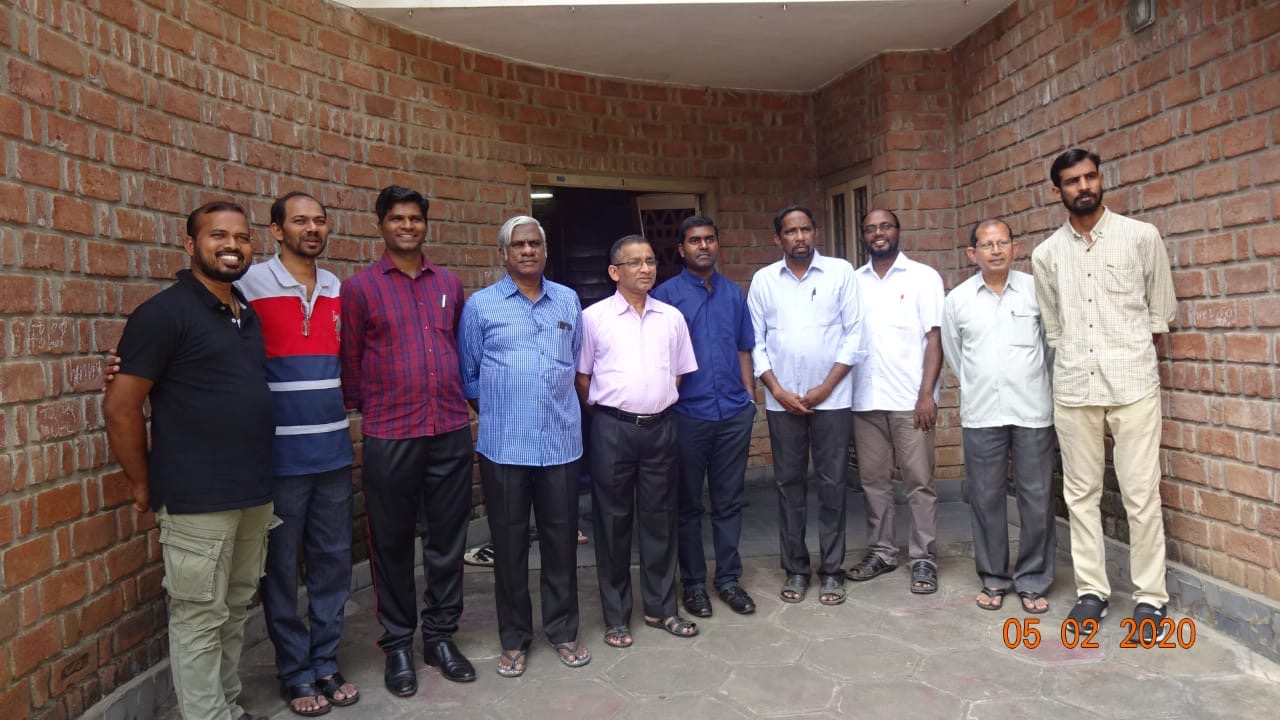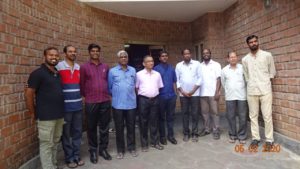
Ravulapalem, 3 – 5 February, 2020: Fourteen Salesians, seven from the province of  Chennai, five from the province of Hyderabad and two from the province of Bangalore attended the three-day long meeting of the SSF (Salesian Social Forum), held at PARA (People’s Action for Rural Awakening), at Ravulapalem, situated in the verdant ambient of Konaseema, in East Godavari district, A.P.. PARA also is the Justice and Peace Centre of the Province of Hyderabad. It also houses OOTA (Wellspring), the Psycho-social and Legal Aid Services centre of the province. The venue evoked the memories of the many interventions, by PARA, over the last 34 years, and of course the liberative ripples, set in motion by the KJC Liberation of the bonded labourers, way back in 1976, a silver lining in the dark days of the Emergency.
Chennai, five from the province of Hyderabad and two from the province of Bangalore attended the three-day long meeting of the SSF (Salesian Social Forum), held at PARA (People’s Action for Rural Awakening), at Ravulapalem, situated in the verdant ambient of Konaseema, in East Godavari district, A.P.. PARA also is the Justice and Peace Centre of the Province of Hyderabad. It also houses OOTA (Wellspring), the Psycho-social and Legal Aid Services centre of the province. The venue evoked the memories of the many interventions, by PARA, over the last 34 years, and of course the liberative ripples, set in motion by the KJC Liberation of the bonded labourers, way back in 1976, a silver lining in the dark days of the Emergency.
Good part of the first day of the meeting was devoted to a soul-searching on the identity of the group, in the broader context of the core-identity of being human, and the gift and the task of promotion of the human. The members became aware that this process would entail shedding many masks and distracting identities, to recover their true humanity. Recovery of humanity, would, in turn, enable them to relate to other human beings, as equals. This might call for the fine-tuning of the Statutes, to be true to the original impulse of being open to the human and to the secular, sloughing off many a sheath of clericalism and patriarch(ies).
After this soul-searching towards clarifying self-understanding and identity, the group engaged itself in an anatomy of the current situation of the erosion of democracy and the emergence of Majoritarian Fascist tendencies in the country. The Forum unanimously decided on the need of speaking truth to power, as a means of safeguarding democracy and the Constitution, in the present political scenario created by CAA, NRC and NPR, shunning neutrality as a political stance. The group was enlightened about evolving micro and macro level strategies of resistance and non-co-operation.
Next item on the agenda for the three days was Sexual Abuse and its link to abuse of power and patriarchi(es). After engaging discussions at length, the members zeroed in on strategies towards resisting the different forms of patriarchi(es) in the Church and society. The structures leading to the abuse of power have to be consistently challenged, shunning the culture of privileges. Members themselves, and the society at large, had to be conscientized on the need of interrogating the structures of political economy and hierarchy, which prevent the rampant and everyday sexual abuse of the Dalit and the Tribal women from getting reported in the media. Whereas, even stray incidents of assaults on women of the higher castes receive immediate and blown up attention. In the case of the sexual abuse of the women belonging to the upper strata of the society, as seen in the light of recent incidents, the governmental machinery also moves expeditiously, towards the redressal of the complaints, even in a vengeful and unconstitutional manner.
Practice being the testing ground of theory, the group was emphatic about overcoming the cleavages between the espoused theories and the actual everyday practice(s), in the areas of obedience, poverty, chastity, community life and mission, through a constant audit of the gap between the espoused theories and the actual practice(s).
The second day commenced with the group, along with the Staff of PARA, listening to Mahua Moitra’s speech against the motion, in response to the President’s address in the Parliament. Following this, Fr Ignatius Vattigunta familiarized the members with the different Desks of PARA and their operational style, which was conspicuously people and poor-friendly. He also introduced the members on the Staff, individually. This interaction was indeed a great learning experience. Finally, it was decided that the Salesian Social Forum would express its views to the forthcoming General Chapter, requesting that it integrates the content and praxis that promote humanity, in tandem with the gospel, as reflected in the UDHR, UNCRC and other international documents and writings. It was also noted that there is an evident Eurocentrism inscribing the content and the process of the General Chapter. The morning of the third day was devoted to charting courses for the way forward.